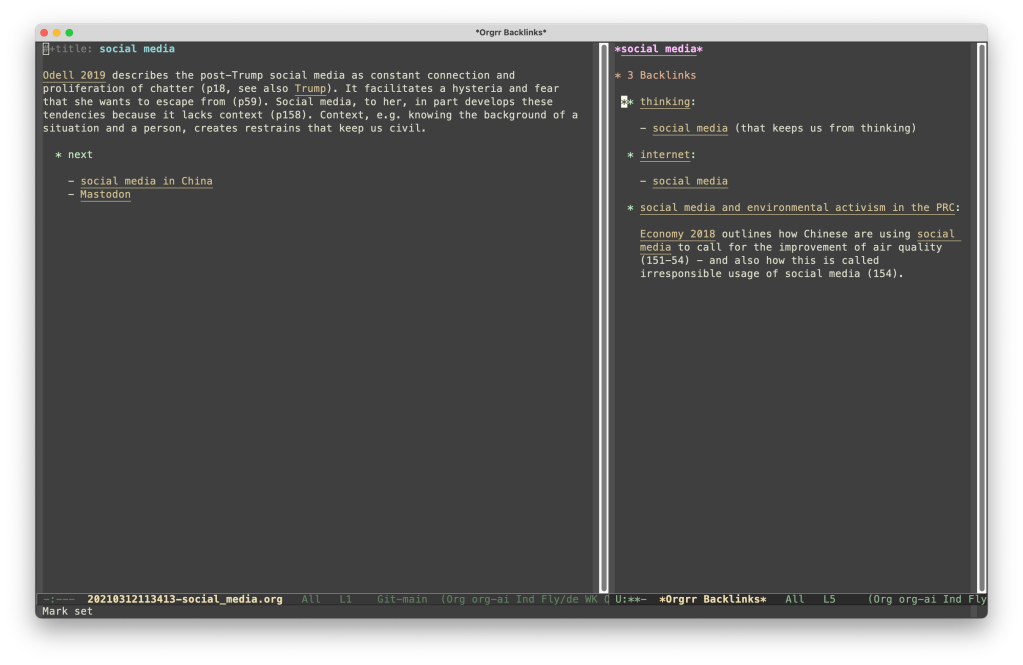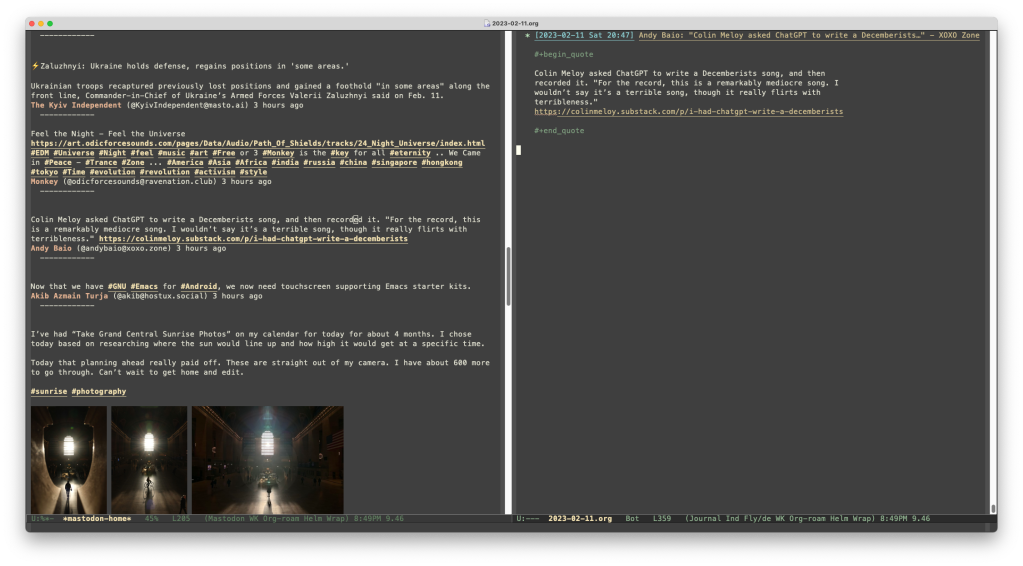One of the main ideas of the Zettelkasten-approach (“This is the way”) is to be able to pull out a number of cards and to look at them at the same time. For a while I tried different ways to replicate this with orgroam (and orgrr).
One of my ideas was to open all relevant notes in a new frame. This worked only ok-ish. Managing multiple frames in Emacs is somewhat hard (for example, all windows have to be re-arranged manually) and there is a limit to the number of notes that you would be able to see at the same time.
Another idea was to use the great org-transclusion package. In my personal use, however, I frequently encountered two issues. First, I only needed a line or two from a note and entering the line-numbers for org-transclusion – despite being easy – added a bit of friction. Secondly, I frequently use my notes as a starting point to write more comprehensive articles/notes. This requires changes to the contents of an existing note that should not affect the source note.
So in sum, I wanted to see a number of snippets from different notes at the same time (with links to their respective sources) but fully moldable to my liking. And I wanted to be able to rapidly add snippets to different thematic “desktops”. Enter orgrr-projects.
Orgrr-projects is the first major deviation from the original org-roam v1 ideas in orgrr. All notes within the org-directory and the roam_tag orgrr-project are an orgrr-project. This makes it very easy to add a note to or to remove it from the list of orgrr-projects. orgrr-open-project presents you a list of all active projects and lets you quickly open the selected one. One use case, for example, would be to have quick access to your favorite problems.
orgrr-add-to-project now lets you add the current line – of either any visited org-document in the active buffer (within the org-directory) or in the *Orgrr Backlinks* buffer – to any of these projects. A link to the source document is also added.























